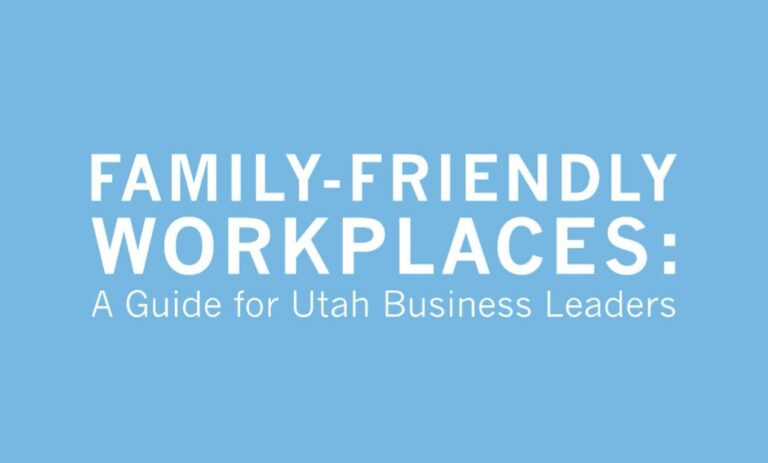In an effort to help the private sector adapt their workplaces to be more family-friendly, the Salt Lake Chamber’s nonproft foundation, Utah Community Builders, has partnered with Voices for Utah Children and United Way of Salt Lake to create a guide entitled “Family-Friendly Workplaces: A Guide for Utah Business Leaders.” This guide answers many pressing questions the business community may have, including: How does child care affect families?
Utah is well-known for being a family-oriented state, with approximately 1 million households in 2021, expected to grow to 1.3 million households by 2030. In addition to the state’s enviously low 2.2% unemployment rate, Utah children face a promising economic future.
Unfortunately, Utah is also considered a child care desert, as 77% of Utahns live without access to child care due to either limited proximity to services or inability to afford care. Child care is one of the most significant costs that challenges families, and as the child care crisis rages on, both access and affordability are increasingly out of reach. As federal pandemic-era relief funds dwindle, families across the state will face a reality in which child care is no longer attainable.
Child care issues deeply affect families in Utah, particularly families with young children not yet in the public school system. When parents are unable to find child care that suits their needs, they may be forced to sacrifice their careers or education. 49% of Utah parents who have left educational pursuits due to child care issues do not plan on returning to school for at least one year. Investing in child care, and adapting workplaces to be more accommodating to parents and families, can have a positive impact on the child care desert and the families who suffer because of it.
In fact, the National Forum on Early Childhood Policy and Programs has found that high-quality early childhood programs can yield a $4-9 dollar return per $1 invested. For example, if a low-income parent can secure a place for their child in a high-quality day care program, that child is likely to benefit from exposure to a wider array of learning opportunities than what they might have at home. Enrolling their child in day care may also open the door for the parent to take on employment or further their education in order to improve career prospects. The impact these child care opportunities have on families can be substantial and life-changing.
For more information on how child care impacts families, read more from the Family Friendly Workplaces guide. With the private sector’s help, we can invest in Utah parents, children and families, making our state an even better place for business.


